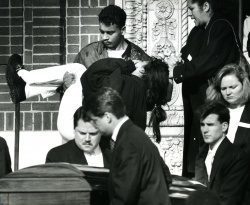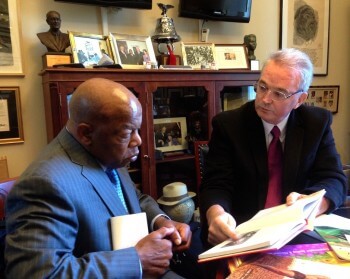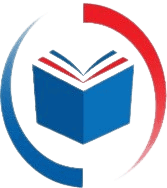Voices began as a response to gang violence in Boston.
- In 1993, Axel Reyes, a freshman at English High School in the Jamaica Plain neighborhood of Boston, was murdered on the Orange Line in a gang fight.
- In response, his next door neighbor, Pat Walker, with the support of Mayor Menino, began to develop Voices of Love and Freedom as a literature-based approach for teaching character education and violence prevention.

BOSTON – JANUARY 22, 1993: A grief-stricken mourner is helped from the Blessed Sacrament Church in Jamaica Plain yesterday as pallbearers remove the casket of Axel Reyes, 16, following his funeral.
We sought to help youth cope with violence by teaching voice,
- In many inner-city schools in Boston during that time, over half of the students had witnessed violence or known someone being killed.
- We began to help students overcome the trauma in their lives by helping them to learn how to tell stories about their experiences and how to use their voices to speak out against gun and gang violence.
"I was discriminated. Well, I wasn't really discriminated. But it was sorta like that. Well I'm Jewish . . ."
—Anna, 2nd Grade, Boston, MA
by sharing inspiring stories about love and freedom,
- We also sought to inspire students by providing them with stories about love and freedom-related values.
- We believed that if students could internalize these values, it would help them to cope with and overcome the violence and social obstacles in their lives.
"Hi, my name is Christopher Santiago and I am very worried about the increase of children doing drugs and joining gangs . . ."—Christopher, 5th Grade, Lebanon, PA
and by teaching and modeling transformative social values and skills.
- In support of these oral language skills and social values, we also sought to help students master important social skills that could help them overcome these obstacles and achieve their goals.
- We placed primary emphasis on teaching students to be able to express their own points of view and to be able to stand in the shoes of other persons and take their points of view.
"I"would like people in my community to stop using alcohol . . . . Alcohol is something that ruins your life and dreams . . ."
—Nizhoni, 5th Grade, Fort Wingate, NM
We embedded these values and skills in supplemental literature and character education programs,
- In the early years, we first developed Voices of Love and Freedom (VLF) which provided authentic, multicultural literature and teacher guides that teachers could use to integrate the teaching of these social skills and values into English and social studies. VLF was adopted by the Boston Public Schools in 1995 for grades K–12.
- Later that decade, we developed a comprehensive reading program and a comprehensive school reform model for the Memphis City Schools that similarly integrated the teaching and modeling of these same core social skills and values.
"Hello, my name is Angel Chin and I will be talking about budget cuts. Would you like to have old broken down books, year after year? . . ."
—Angel, 5th Grade, San Francisco, CA
in core reading and writing programs, and in support for comprehensive school reform.
Based on a very positive evaluation of this curriculum and design model in Memphis, Zaner-Bloser in 2004 began publishing the following programs:
Voices Reading (K–6)
Voices Pre–K
Voices Literature and Character Education (K–12)
Voices Literature and Writing (K–6)
Voices Leveled Library (K–8)
Voices 3c eLessons (K–6)
These various Voices programs were purchased by over 1,000 schools nationwide
"My name is Candy Medea. My speech is about racism. . . .This is important to me because I don't like it when people make fun of me when I speak Spanish. Also I don't like it when they call me Spanish girl or Mexican. My name is Candy and I am from Honduras. Please help me make this place kind and respectful. Thank you."
–Candy, 2nd Grade, San Francisco, CA
Now, we are launching
Lift Every Voice. . .
Lift Every Voice is the next wave of Voices!
The primary focus of Lift Every Voice will be on helping our young people to develop and use their voices to advocate democratic solutions to major social problems.
We seek to go beyond earlier Voices programs by being able to reach far more young people through providing free digital access to youth anywhere in the world.
We also seek to go beyond earlier efforts by focusing much more directly on the most important social issues of the day. We propose to help youth to understand these problems and to master the social, emotional, language, literacy, social studies, and critical thinking competencies they need to solve these problems.
"The world including the United States of America is in my opinion a place full of racial discrimination. We believe and understand that all men are created equal. But do we act so?"
—Kenny, 9th Grade, Colorado Springs, CO
. . . with an initial focus on empowering young people to lift their voices to stop the pandemic and gun violence.
Lift Every Voice is being organized around helping young people to learn core democratic values, skills, and knowledge which they can then use to advocate for solutions to some of the most important issues of our day. Young people begin by listening to the stories of victims, survivors, family members, and community members that have been affected by these two plagues and then they share their own stories.
"On Wednesday, November 1, 2017, I was part of the Thornton Walmart shooting . . ."
—Brissa, 12th Grade, Denver, CO
Lift Every Voice helps young people tell their stories and deliver speeches related to the pandemic and the gun violence crisis.
The most important skill that is modeled, taught, and practiced in Lift Every Voice is voice. Young people read and listen to the stories and speeches of democratic activists in the United States from the American Revolution to the present day. They explore the democratic values in these stories and speeches and how to argue effectively to create a more compassionate, just, and free society.
"Hi, my name is Jordan. The title of my speech is 'Youth Violence and Exposure to Guns'. I believe that in order to make a dent in our nationwide gun issue, we need to pass the following proposals . . ."
—Jordan, 12th Grade, Denver, CO
Reach Youth Anywhere!
Lift Every Voice is being designed so that youth anywhere can access it online for free.
They can explore the Lift Every Voice Resources and Lift Every Voice Minicourses, listen to oral stories, share their own stories, listen to speeches, and then present their own.
They can explore as much or as little as they want. They can come back as often as they want.
Integrate Into All Kinds of Educational Settings!
Lift Every Voice is also being designed so that it can be integrated into educational settings and classrooms anywhere for free online.
Teachers can make available the Lift Every Voice Resources and/or the Lift Every Voice Minicourses for their students to engage in on their own.
Or teachers can integrate any of the Lift Every Voice Resources and Lift Every Voicer Minicourses into their courses (e.g., English, ELL, Social Studies, Critical Thinking, or Life Skills).
They can co-teach or coordinate the teaching of these minicourses with one or more other teachers.
For maximum effect, they could integrate the teaching of these minicourses into as many content areas as possible and then have a culminating Lift Every Voice discussion that brings all the lessons and perspectives together with the possibility of deciding on a set of proposals for solving the selected social problem.
What are the most powerful social values and skills?

Pat Walker discussing Lift Every Voice with Congressman John L. Lewis (2014)
"What are the most powerful social values and skills that can help a young person improve his or her life? This is the question that my neighbors and I asked ourselves after my next-door neighbor, Axel Reyes, was killed in a fight between his gang and a rival gang in the Jamaica Plain neighborhood of Boston in 1993."
—Patrick C. Walker, PhD, Director, Voices Institute, Voices founder and author


